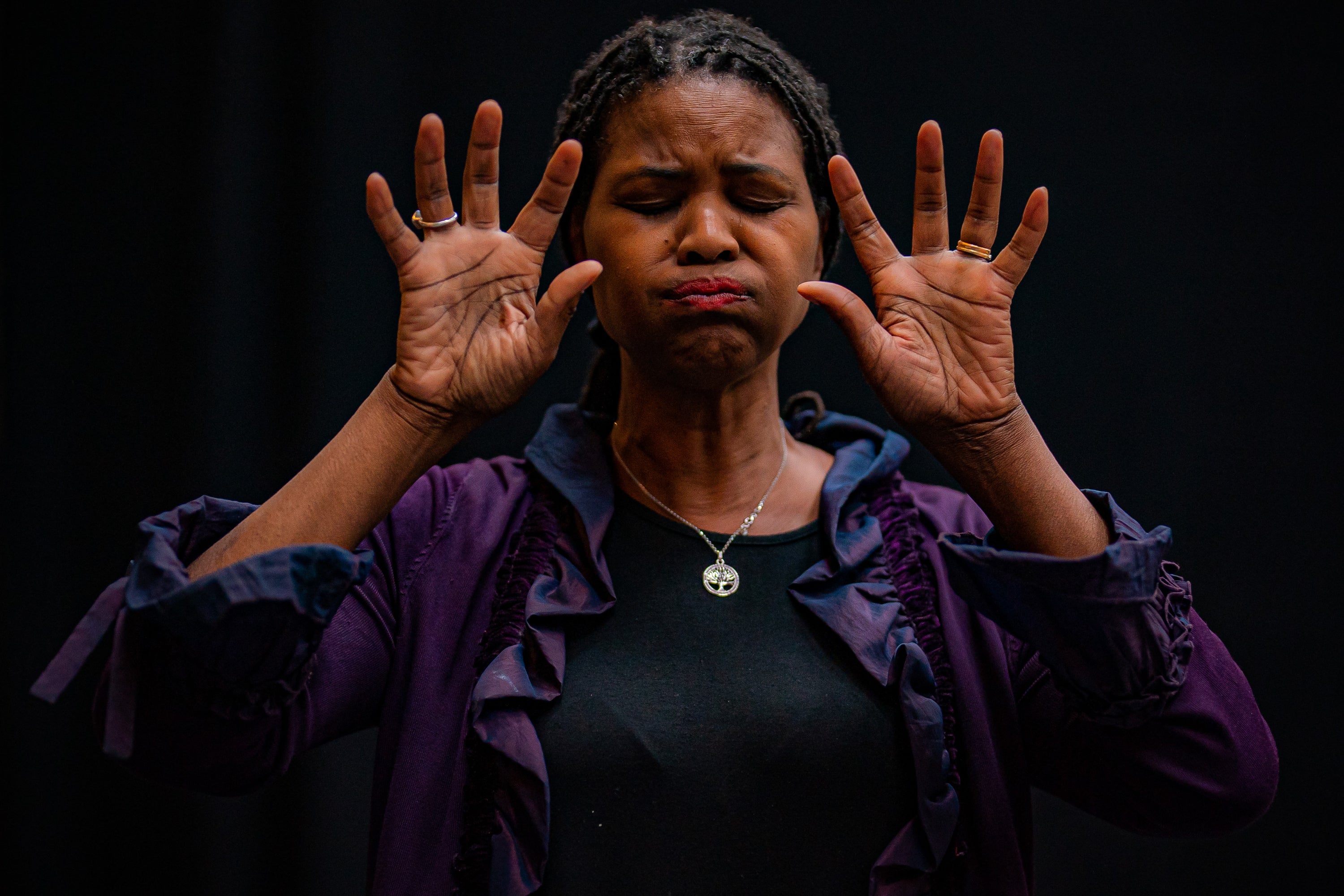House of Lords marks first live use of sign language interpretation
Peers also heard the Government has started drawing up plans for a GCSE in the language, with more likely to be revealed later this year.

Your support helps us to tell the story
From reproductive rights to climate change to Big Tech, The Independent is on the ground when the story is developing. Whether it's investigating the financials of Elon Musk's pro-Trump PAC or producing our latest documentary, 'The A Word', which shines a light on the American women fighting for reproductive rights, we know how important it is to parse out the facts from the messaging.
At such a critical moment in US history, we need reporters on the ground. Your donation allows us to keep sending journalists to speak to both sides of the story.
The Independent is trusted by Americans across the entire political spectrum. And unlike many other quality news outlets, we choose not to lock Americans out of our reporting and analysis with paywalls. We believe quality journalism should be available to everyone, paid for by those who can afford it.
Your support makes all the difference.The House of Lords has seen the first live use of British Sign Language interpretation as peers backed a Bill giving the language legal recognition across Britain.
Lord McFall of Alcluith, the Speaker in the House of Lords, marked this moment for BSL interpretation in the upper chamber, and also used the BSL sign for ‘thank you’ in the chamber.
Peers also heard that the Government has started drawing up plans for a GCSE in the language, with more likely to be revealed about the proposals later this year.
Before peers started the second reading debate of the British Sign Language Bill, which would give BSL legal recognition in England, Wales and Scotland, Lord McFall said: “I would like to point out that a British Sign Language interpretation of proceedings is available to watch on parliamentlive.tv.
“I am delighted to mark this first occasion of the live use of BSL interpretation in the House of Lords.”
As he ended his remarks, Lord McFall made the BSL sign for ‘thank you’.
Conservative peer Lord Holmes of Richmond, who is sponsoring the Bill, opened the debate by saying: “The purpose of the Bill, in many ways, incredibly straightforward. Simply this: to include BSL signers.
“One example to make the point: imagine you are a BSL signer and you go to a hospital or a GP appointment. The news might not be good, it may be, but whether good or bad, it’s certainly personal.
“Perhaps some of the most personal interaction you may have with the state. In no circumstances it seems wholly appropriate that a BSL signer should not have to rely on a spouse, a parent, a child, a sibling to enable that encounter to be accessible and inclusive.”
Rose Ayling-Ellis was amazing, and it is wonderful to hear about the increase in people wanting to learn sign language
He added: “In the British Sign Language private members’ bill, the honourable lady Rosie Cooper (the Labour MP for West Lancashire) has given us a barrel of a Bill. A barrel of a Bill from which can flow forth the finest brew of all: inclusion.”
Crossbench peer Baroness Grey-Thompson described the live interpretation of the Lords debate as “truly a landmark moment”.
Lady Grey-Thompson also paid tribute to Strictly Come Dancing for its part in raising awareness about BSL, adding: “What we have seen in recent months is the power of television. The power of Strictly to educate is possibly more than we ever thought it might be.
“Rose Ayling-Ellis was amazing, and it is wonderful to hear about the increase in people wanting to learn sign language.
“Over the years I have heard many times about teaching BSL in schools or even having a GCSE. That would show true commitment.”
Liberal Democrat Baroness Thomas of Winchester urged the Government to reveal how advanced plans for the qualification were.
Work and Pensions minister Baroness Stedman-Scott said: “The Government is committed to supporting all people with a disability including deaf people to lead fulfilled, independent lives.
“For deaf people this must include the ability to communicate with others through BSL or other forms of deaf communication.
“BSL is a rich vibrant language in its own right that helps to build a sense of community for many deaf BSL signers.”
On the GCSE, she added: “I can confirm that DfE (the Department for Education) is working closely with subject experts to develop draft subject content for a BSL GSCE.
“The DfE is also working with Ofqual to ensure the subject content can be assessed appropriately and the department is aiming to consult publicly on the draft subject content later in 2022.”
Peers will give further consideration to the Private Members Bill before it can become law.